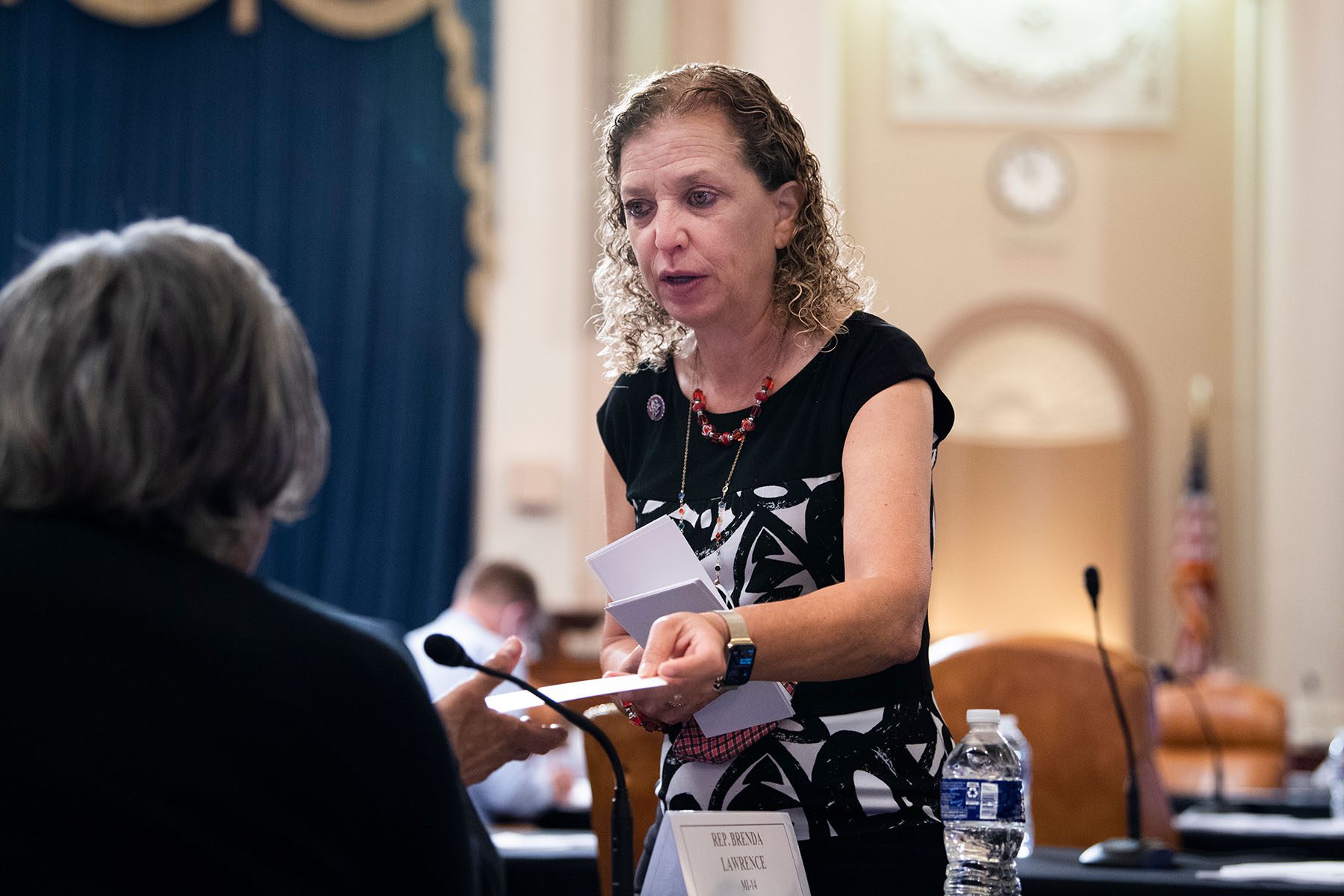A new bipartisan caucus in the U.S. House has launched to bring attention to fertility challenges faced by millions of Americans and take up a decades-long fight for expanded access to fertility treatments for military families, veterans and federal workers.
The creation of the Family Building Caucus comes as the future of IVF in post-Roe America is uncertain, both because of the unintended consequences of strict abortion bans sponsored by Republicans and calls by some anti-abortion groups to put restrictions on the handling on embryos created via IVF.
Groups that advocate for expanded access to and protections for reproductive medicine cheered the creation of the caucus and, in particular, its bipartisan nature.
The caucus’ Democratic founder, Rep. Debbie Wasserman Schultz of Florida, said the caucus wants to decouple the issues of fertility treatments and abortion to find common ground in the GOP-controlled House in the next Congress. The caucus, which right now consists of founders Wasserman Schultz and Republican Rep. Billy Long of Missouri, will start with educating members about the ubiquitous nature of infertility, available treatments and hurdles.

Wasserman Schultz and her husband struggled with infertility when she was in her late twenties, and through IVF, conceived and gave birth to twins. She said many families across the political spectrum have faced similar obstacles, and that she was confident that the caucus would attract “broad bipartisan” support.
Wasserman Schultz pointed to former Vice President Mike Pence, a staunch opponent of abortion rights, who said in an interview last week that he believes in legal protections for fertility treatments.
“I mean, you have people like Mike Pence, who have spoken recently about the importance of preserving access and developing fertility treatments,” Wasserman Schultz said in an interview. “And so I think there’s a way to separate it and not do so in a way that compromises our position on abortion rights,” she told The 19th.
Pence spoke about fertility treatments with CBS News last week after the release of his book, “So Help Me God,” which includes new details about his wife’s IVF treatments.
“I fully support fertility treatments and I think they deserve the protection of the law,” Pence said in a televised interview. “They gave us great comfort in those long and challenging years that we struggled with infertility in our marriage.”
Pence said in the same interview that he hopes to see abortion restricted in all 50 states. He said he would have supported a proposal for a 15-week federal abortion ban if he were in the Senate. Notably, the abortion ban in Pence’s home state of Indiana specifically exempts IVF from its provisions.
The caucus’ Republican founder, Long, said in a statement celebrating the launch of the bipartisan caucus that he is motivated by reported decreases in male fertility. Among the caucus’ goals is to support research on infertility and education of health care professionals on causes and risk factors. Long is staunchly opposed to abortion.
“We should be working to build resilient families and addressing the significant fertility rate decreases is a major part of that effort,” Long said in a statement. Long’s office did not respond to multiple requests for comment on his support for specific proposals.
BroadIy, it remains unclear how Republicans will reconcile the political popularity of access to fertility treatments, support for strict abortion policies that could have unintended impacts on IVF and calls from anti-abortion groups to tighten regulations around IVF and embryos.
IVF is an assisted reproductive technology where eggs are fertilized with sperm in a laboratory, and one or more resulting embryos are placed back in the uterus or stored, sometimes after genetic testing. State laws that define life as beginning at conception could limit how many eggs are fertilized in each IVF cycle and limit what patients can do with embryos that are not genetically viable.
Several state-level Right to Life groups are critical or outright oppose IVF. Illinois Right to Life, for example, says IVF “directly and continuously initiates the destruction of human beings.” The Family Research Council, which opposes abortion access, does not outright oppose federal funding of IVF, but says the government should lay out rules for the handling of resulting embryos.
-
More from The 19th
- ‘This is our new normal’: Fertility treatment advocates are gearing up to fight abortion bans and personhood laws
- Sen. Tammy Duckworth’s IVF experiences are informing her positions on abortion
- IVF patients started moving their embryos out of states with abortion bans when Roe fell
The caucus came together with support from a number of infertility care advocacy groups, including the Military Family Building Coalition. The group had spent years advocating for U.S. military health care, known as TRICARE, to cover infertility treatments for military servicemembers and their families.
She said that the unique nature of military work, which results in spouses being separated for extended periods of time, heightens the need for fertility medicine compared to the general population.
“Most Americans have no idea that the military does not support fertility treatment in what is otherwise great health care. We think this is a huge step forward, particularly the fact that it’s bipartisan,” said Ellen Gustafson, who co-founded the coalition after tapping IVF to conceive. Her husband serves in the U.S. Navy.
Gustafson said her group is advocating for an official study by the U.S. Department of Defense into infertility in the military. A recent survey by the advocacy group Blue Star Families found that 67 percent of military-connected respondents reported challenges with family building.
The National Defense Authorization Act, which sets policy and spending levels for the Pentagon and the nation’s national defense work, includes an amendment calling for the study. Approval of the measure is still pending amid criticism by House Minority Leader Kevin McCarthy that Democrats are prioritizing “wokeism” in the NDAA. McCarthy did not mention the infertility study.
Barbara Collura, the president and CEO of RESOLVE: The National Infertility Association, said support for expanded coverage of infertility treatment has come overwhelmingly from Democrats. She said that “strong Republican forces in the House and Senate” have long opposed any funding toward IVF because of questions about the fate of unused embryos.
She said that the creation of the bipartisan caucus brings to the forefront “something that was only talked about in whispers” on Capitol Hill, despite many members and their staffs having experienced infertility. She said Pence’s recent comments on IVF may move the needle.
“For him to mention that, to say it should be protected, it was a big deal. We certainly will continue to let Republicans know what he stated,” Collura said.
“I don’t know how family building ever got to be partisan, but it tends to be the case at the federal level and the state level. I’m always baffled by that because our constituents are all over the place politically.”







